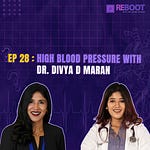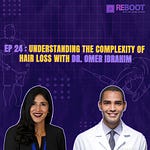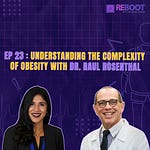Summary
Dr. Arasi Maran and Dr. Apurva Modi discuss various aspects of liver disease, including fatty liver and alcoholic liver disease. They highlight the importance of early detection and lifestyle changes in managing liver disease. They also discuss the barriers to eating better and the impact of socioeconomic status on liver health. The conversation concludes with a discussion on the treatment options for alcoholic hepatitis. This conversation covers various topics related to liver health, including liver transplants for alcohol-related liver disease, the impact of chronic alcohol problems, symptoms and diagnosis of liver disease, the effectiveness of liver supplements and detoxing, the benefits of fasting and intermittent fasting, the potential of fecal transplantation, and the role of small intestine bacterial overgrowth (SIBO) in liver health.
Takeaways
- Liver disease is often asymptomatic until complications develop, highlighting the importance of regular liver function tests and ultrasounds for early detection.
- Non-alcoholic fatty liver disease (NAFLD) is a reversible condition that can be managed through lifestyle changes, such as weight loss and adopting a Mediterranean diet.
- A new FDA-approved medication called resmetarone shows promise in treating fatty liver by reducing fat, inflammation, and fibrosis in the liver.
- Socioeconomic factors can contribute to poor dietary habits and make it challenging for individuals to make healthier food choices.
- Alcoholic liver disease includes acute alcoholic hepatitis and alcoholic cirrhosis, with limited treatment options available.
- Liver transplants are typically not offered to individuals with alcoholic liver disease unless they meet strict criteria, including six months of alcohol abstinence. No amount of alcohol is safe for the liver, and combining alcoholic and non-alcoholic fatty liver disease can cause rapid damage.
- Liver disease often has no symptoms until late stages, making early detection challenging.
- Supplements for liver health should be approached with caution, as there is limited evidence for their effectiveness.
- Intermittent fasting can be beneficial for liver health by preventing excess calorie intake and promoting weight loss.
- Small intestinal bacterial overgrowth (SIBO) can cause bloating and discomfort, and can be diagnosed through a hydrogen breath test.
Chapters
00:00 Introduction to Liver Disease
02:35 Early Signs and Diagnosis of Liver Disease
07:11 Progression of Liver Disease: From Fatty Liver to Cirrhosis
09:58 Reversibility of Fatty Liver through Lifestyle Changes
13:47 Barriers to Making Healthier Food Choices
25:10 Acute Alcoholic Hepatitis
30:00 Treatment Options for Alcoholic Liver Disease
30:56 Liver Transplant Criteria
32:20 Chronic Alcohol Problem
33:19 Cirrhosis and Symptoms
34:45 Alcohol Cravings and Treatment
35:44 Waiting Period for Transplant
36:14 Liver Recovery and Prognosis
37:07 Symptoms and Diagnosis of Liver Disease
38:04 Lack of Education on Liver Disease
39:01 Screening for Liver Disease
39:30 Supplements and Liver Health
40:26 Detoxing the Liver
41:17 Fecal Transplantation
41:46 Role of Fecal Transplants in Liver Disease
42:44 Limitations of Eastern Medicine
45:06 Evidence-Based Approach to Supplements
45:45 Intermittent Fasting and Weight Loss
50:31 Mindful Eating and Nutrition
52:22 Fecal Transplantation and Microbiome
54:45 Small Intestinal Bacterial Overgrowth (SIBO)
FOLLOW ME ON SOCIAL MEDIA
INSTAGRAM : @ docarasimaran
TWITTER : @ ArasiMaran












Share this post